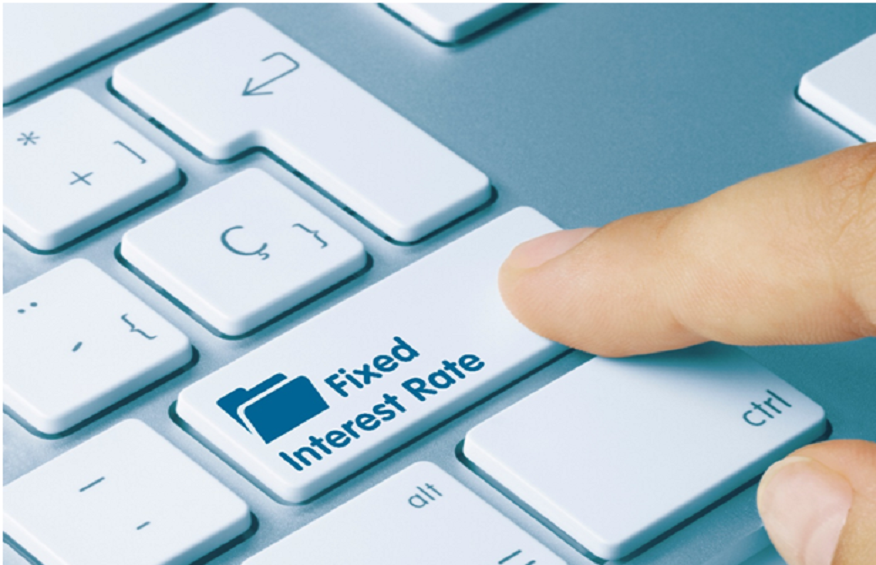Fixed Deposits or FDs have long been a preferred form of investment in India. They offer a guaranteed rate of return on your investment, making them a low-risk investment option. One of the most important factors to consider when investing in FDs is the interest rate. In this article, we will explore what Fixed Deposits are, how to invest in them, the interest rates offered by different banks, and the pros and cons of investing in FDs.
What is a Fixed Deposit?
A Fixed Deposit is a type of investment provided by banks and financial institutions. It is a savings account where you can deposit a lump sum of money for a pre-determined period, which can range from a few months to several years. The interest rate on the deposit is fixed at the time of investment, and you earn interest on your deposited amount at that rate.
How to Invest in Fixed Deposits?
Investing in FDs is a hassle-free process. You can invest in Fixed Deposits through your bank or other financial institutions that offer this facility. To invest in FDs, you need to follow these simple steps:
1. Choose a bank or financial institution that suits your investment needs.
2. Decide on the tenure of your FD – this can range from a few months to several years.
3. Decide on the amount you want to invest in your FD.
4. Submit the required documents, like your ID proof, address proof, and PAN card, to open the FD account.
5. You can choose either to receive periodic payouts of the interest earned or opt for the interest to be reinvested.
Interest Rates for Fixed Deposits
The interest rate for Fixed Deposits varies from bank to bank and is determined by several factors, such as the amount deposited, the tenure of the deposit, and the prevailing market interest rates. Some banks also offer special FD interest rates for senior citizens and individuals making large deposits.
To get an idea of the FD interest rates offered by different banks, you can use tools like the Bajaj Finserv app, HDFC bank mobile app etc.
Competitive Interest Rates Provided by Banks
1.SBI – 00% – 6.50%
2. Canara Bank– 4.00% – 6.70%
3. HDFC– 3.00% – 7.00%
4. Bajaj FinservApp – 7.12% – 8.60%
5. Post office –6.90% -7.50%
6. ICICI Bank –3 00% – 6.90%
7. AXIS Bank – 3.50% – 7.00%
8. IDFC First Bank – 3.50%-7.00%
FD Tax and TDS Rates
Fixed Deposits are subject to tax under Section 80C of the Income Tax Act. The interest earned from Fixed Deposits is also subject to TDS or Tax Deducted at Source. The TDS rate on FD interest is 10% if the interest earned exceeds ₹40,000 in a financial year.
Pros and Cons of Fixed Deposits
Fixed Deposits offer several benefits, such as:
1. Guaranteed returns: Fixed Deposits provide a guaranteed rate of return on your investment, making them a safe and reliable investment option.
2. Low-risk investment: FDs are one of the most secure investment options and offer low risk.
3. Liquidity: Fixed Deposits offer high liquidity, and you can withdraw your deposit at any time before the maturity date. However, some banks may charge a penalty for premature withdrawal.
4. Tax benefits: Fixed Deposits offer tax benefits under Section 80C of the Income Tax Act, and senior citizens can take advantage of higher FD interest rates.
However, there are also a few drawbacks to investing in Fixed Deposits, such as:
1. Low returns: FDs offer lower returns compared to other investment options like mutual funds and stock markets.
2. Fixed returns: The rate of interest on FDs is fixed at the time of investment and does not change with changes in market conditions.
3. Inflation risk: With rising inflation rates, the interest earned from FDs may not be able to keep up with the inflation, resulting in a diminishing value of savings.
Conclusion
Fixed Deposits are a popular investment option for those looking for a low-risk, guaranteed return investment option. The interest rates for Fixed Deposits vary from bank to bank. However, it is important to remember that while Fixed Deposits offer several benefits, they also come with a few drawbacks, and it is essential to assess your investment needs before investing in FDs. Finally, investing in Fixed Deposits through apps like the Bajaj Finserv app, HDFC mobile app, SBI mobile app etc. can make the investment process more convenient and hassle-free.

